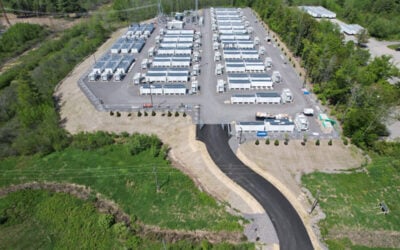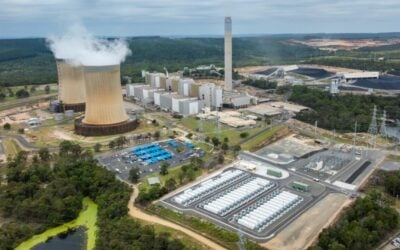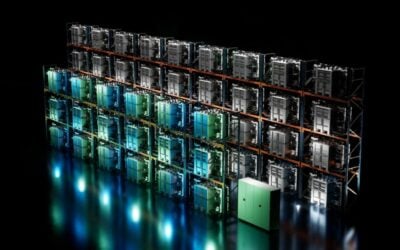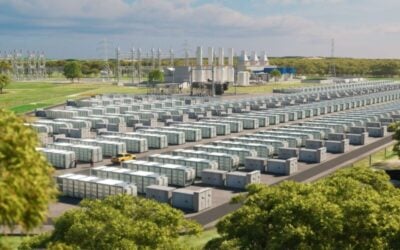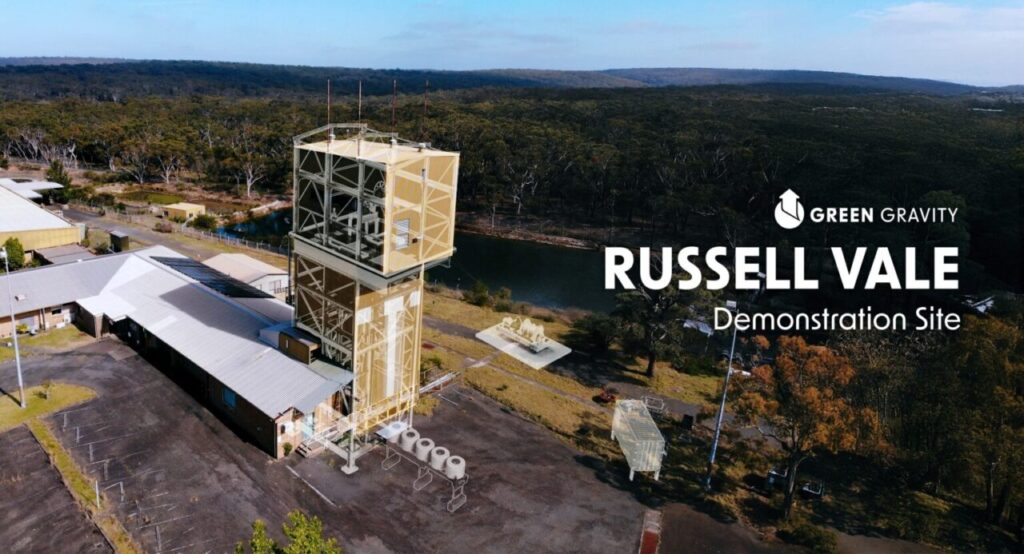
Australian startup Green Gravity has penned a binding agreement with mining company Wollongong Resources to trial its gravitational energy storage at the Russell Vale mine in Australia.
Under the agreement, the two organisations will jointly conduct trial tests of Green Gravity’s gravitational energy storage solution at Russell Vale #4 mine shaft in the Wollongong region of New South Wales (NSW).
The trial will represent the world’s first deployment of Green Gravity’s technology and build upon a memorandum of understanding (MoU) signed between the two organisations in 2023.
The technical trials will include repurposing key infrastructure at the site and installing new electrical and mechanical components. The site will remain non-grid connected during the trials, with energy storage tests at 150kW of power.
Try Premium for just $1
- Full premium access for the first month at only $1
- Converts to an annual rate after 30 days unless cancelled
- Cancel anytime during the trial period
Premium Benefits
- Expert industry analysis and interviews
- Digital access to PV Tech Power journal
- Exclusive event discounts
Or get the full Premium subscription right away
Or continue reading this article for free
The energy exchange will be tested at up to 400 metres of depth, underpinning scaled testing of the technology.
The Russell Vale mine was an active coal mine between the late 1800s and 2023, after which it entered care and maintenance. According to Wollongong Resources, it was one of the oldest operating mines in Australia before closing due to safety concerns following an initial frictional ignition event in April 2022.
Green Gravity’s technology transforms legacy mineshafts into a base for its gravity-based energy storage technology. Due to Australia’s vast mining operations, the technology could provide the country with vast quantities of energy storage capacity.
The commercial application of Green Gravity’s gravitational energy storage technology is expected to deliver increments of up to 10MW lasting between 8 and 20 hours at individual mineshafts.
The technology’s potential attracted AU$9 million (US$6.02 million) in Series A capital funding last year, which was allocated to complete product development. Several investors, including HMC Capital, BlueScopeX, Pacific Channel and Sumisho Coal Australia Holdings, provided funding.
Green Gravity has begun the final stage of its feasibility study to facilitate the permitting and construction of the demonstration plant. The company anticipates making a final investment decision on this capital project within a few months, aiming to advance large-scale production trials in 2026.
It is worth noting that Green Gravity is currently exploring deploying 2GWh of its gravitational energy storage technology in Northwest Queensland in partnership with Mount Isa City Council and global mining company Glencore.
Vecco Group secures financing for ‘Australia’s first vanadium battery supply chain’
Meanwhile, Vecco Group, an integrated mining and manufacturing critical minerals business, has secured funding from the Queensland government to create what it claims will be “Australia’s first vanadium battery supply chain”.
The Queensland government, which has been repeatedly scrutinised over the past few months for stifling investment in the state’s energy transition, has provided AU$10 million in funding to support a vanadium mine at Julia Creek alongside a commercial-scale electrolyte facility in Townsville.
Dubbed the Vecco Critical Minerals Project, an AU$798 million initiative that was declared a “coordinated project” by the Queensland government last year, is expected to produce up to 8,000 tonnes per annum of vanadium.
Over the course of 17 years, 4,000 tonnes per annum of high-purity alumina and 600 tonnes per annum of molybdenum would also be produced. Early works on the project are scheduled for 2026, and operations are to commence in early 2028.
Queensland’s minister for finance, trade, employment, and training, Ros Bates, believes vanadium flow batteries could help bolster the state’s economy by creating more jobs and opportunities.
“This project proves our opportunity is bigger than just the raw minerals in the ground. Vecco’s partnership with Idemitsu shows global confidence in North Queensland to deliver an end-to-end vanadium battery supply chain. That’s the kind of investment Labor failed to deliver,” Bates said.
The previous Queensland government commissioned a report that found advantages in the value chain for lithium-ion (Li-ion) batteries in terms of raw materials in the state. Queensland has reserves of vanadium that could be leveraged, giving the state a competitive edge over rival domestic and international markets.
This was complemented by the state’s official battery strategy, which was released as part of its major Energy and Jobs Plan.
Thomas Northcott, Vecco Group managing director, previously highlighted that Australia’s demand for medium and deep duration storage by 2045 has “been estimated at over 100GWh”, with the vanadium flow batteries set to be manufactured in Townsville set to “help meet this need while creating good jobs in regional areas”.
Our publisher, Solar Media, will host the Energy Storage Summit Asia 2025 on 7-8 October 2025 in Manila, the Philippines. You can receive 20% off your ticket using the code ESN20 at checkout.

